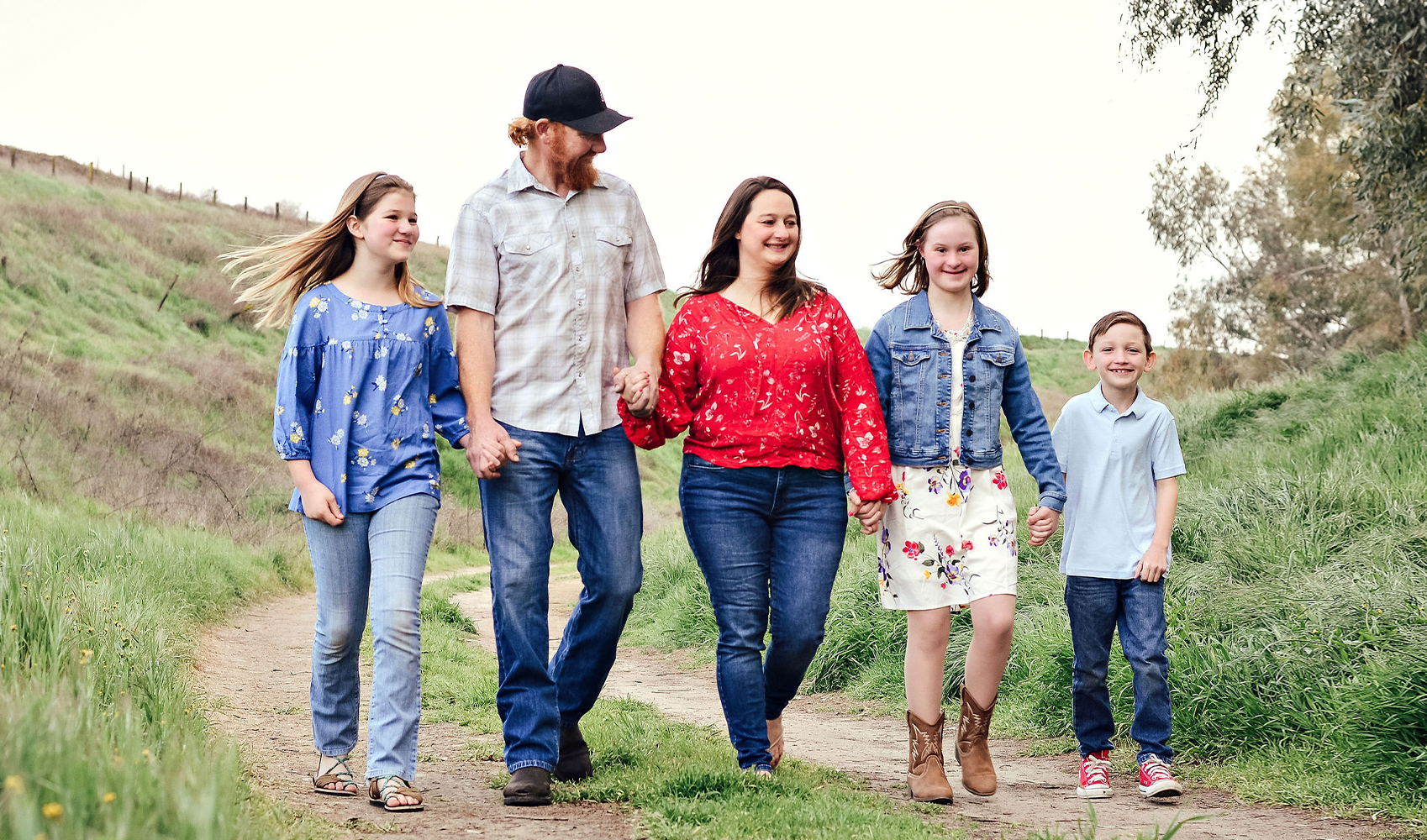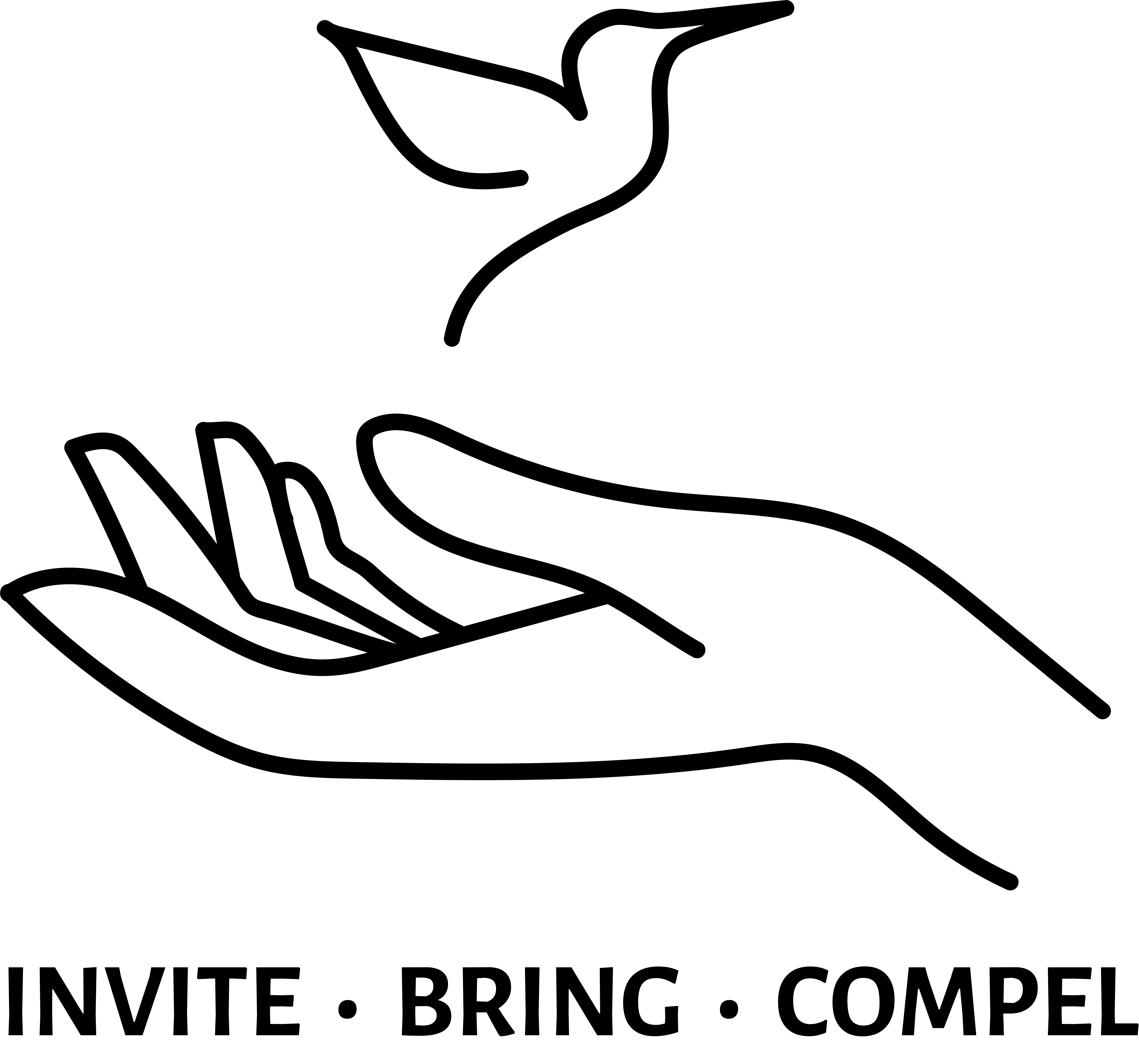Module 2: Walking with Families

Family of five walking down a path. The oldest girl has Down Syndrome. Image © Sweet Nectar Society.
What Families Need
People and families affected by disability long for a place where they can rest their weary hearts, minds, and souls. They need to be in the presence of the Lord and surrounded by people who will extend empathy, care, and concern, not judgement or pity. They need space to grieve the infinite tiny losses and those that are large and looming. They are desperate for cheerleaders who will celebrate milestones they didn’t think were possible. Paul in Galatians 6:2 calls us to “share each other’s burdens, and in this way we obey the law of Christ”; “the law of Christ is fulfilled when we take another’s burden as seriously as our own. This is how we facilitate co-flourishing”[1] Walking alongside a person or family affected by disability “might involve providing practical assistance with transportation, or personal hygiene. It may mean providing encouragement to one who is suffering, helping that person to resist the temptation to give in to despair and hopelessness… the ministry of care isn’t just an obligation of Christians; it is also a privilege”[2]
Here are four simple ways that you can walk alongside a family affected by disability.
1. Go near. Get to know them. Spend enough time with them so that they are comfortable with you. Disability, if you are unfamiliar with it, can feel scary. You don’t want to say or do the wrong thing but being familiar with each other builds two-way trust and can reduce anxiety.
2. Show up. Show up to the birthday party that might not have any other guests. Show up to the hospital and sit with mom or dad or give them a break so they can go shower. Send a Starbucks card on the day of the Individual Educational Plan meeting, notoriously fraught with emotions and battle lines. Help pay a medical bill or for a piece of specialized (read expensive) equipment. In other words, be a friend.
3. Be there for the long haul. Bring dinner after the first surgery, bring it after the 10th. Caring for the disabled community is not a trend or a fad, it is the call of the church until Jesus returns.
4. Offer specifics. Rather than telling them to ask if they need anything, tell them specifically how you’d like to serve them. When you ask an opened ended question or tell them to ask you, the person now must assess what they need that day, that week, that month and then they must assess what task they can trust you with. Mentally it’s more work and likely they won’t ask at all. Here is how you can start the conversation, “I’d like to do this on this day, would that be helpful?” and let them take it from there.
In the last section of this module, you will hear people affected by disability share their first-hand experiences in the church. While you listen to their stories ask God to show you ways in which you could better support the families you know.
[1] Kenny, My Body is Not a Prayer Request, 98.
[2] Beyond Suffering Bible: Where Struggles Seem Endless, God’s Hope Is Infinite, Beyond Suffering Bible: Where Struggles Seem Endless, God’s Hope Is Infinite (Carol Stream, IL: Tyndale House Publishers, 2016), 1341.
Reflection Questions
[qsm quiz=6]
In Their Own Words
Listen to disabled individuals and their families as they share their experiences of being cared for in the church.
Note: Sensory overload is a common challenge for many with disabilities and items such as noise cancelling headphones, sunglasses, or (in Michael’s case) a hat are helpful for reducing visual and auditory stimuli.
Reflection Question
[qsm quiz=7]
Additional Resources
Joni: An Unforgettable Story
by Joni Eareckson Tada
One of the most beloved Christian autobiographies of modern times, Joni highlights the unforgettable story of a young woman’s courageous struggle to find hope after a broken neck left her completely paralyzed.
On a hot July afternoon, Joni Eareckson Tada’s life was dramatically altered in a split second. A reckless dive into shallow water took an athletic young woman from health and success to life as a quadriplegic in a wheelchair. In the forty-five years since the release of this book–which has more than five million copies in print in over forty languages–Joni’s earnest struggle to find hope has resonated with millions of readers around the world. The hard-earned truths she shares in this special edition reveal the power of God’s love to transform, as well as the triumph of faith over pain and suffering.
Joni’s message has inspired people facing all types of challenges, helping them overcome their own limitations with a determined smile. In this updated edition, you will discover how to stay satisfied in God through disappointment and affliction. Filled with practical insights, Joni will help you find hope in every hardship.
This commemorative 45th anniversary edition features updated photos, as well as an all-new afterword in which Joni describes her current battle against two different cancers, her daily struggle with chronic pain, and the joys of leading a global outreach to people living with disability.
The Silent Garden: A Parent’s Guide to Raising a Deaf Child
by Paul Ogden and Dave Smith
For over 30 years, The Silent Garden has offered parents of deaf children the support and unbiased information needed to fully realize their children’s potential. This completely revised third edition is a must-have resource that will help parents navigate the complex and unique challenges they face. Accessible, practical, and, above all, open-minded, The Silent Garden educates parents quickly and thoroughly about the many conflicting points of view on what is best for their deaf children.
Authors Paul W. Ogden and David H. Smith, who are both deaf, present examples and research that guide parents through often unfamiliar territory. From coping mechanisms for parents to advice on creating healthy home environments, the authors cover a range of topics that impact day-to-day actions and decision-making. The topic of communication is discussed extensively as communication access and language development are crucial not only for intellectual growth, but also for positive family and social relationships. The authors look at American Sign Language, listening and spoken language, written English, and various other modes of communication available to deaf children. Different educational options are presented, and technology—including the debate about cochlear implants—is reviewed. Deaf children with special needs are considered here as well. Each topic is accompanied by real-life stories that offer further insight.
Always encouraging, The Silent Garden empowers parents to be the best advocates for their deaf children. Throughout, the authors emphasize that each choice is highly personal, and they stress that all deaf children have the potential to lead rich, productive, and exciting lives.
The Multiplication of Elmer Whit
by Karsen Kipp
Some teenagers are zeroes, and some are infinite. Elmer Whit may be both. Elmer is used to subtraction. He was born with less than most, and the world keeps making deductions. Until she showed up. An extraordinary girl, the multiplication of strangers, and a road trip to forgiveness prove that love-times-love equals infinite hope.
After We’re Gone: A Christian perspective on estate and life planning for families that include a dependent member with a disability
by Duane Ruth-Heffelbower
Caring for an adult who is dependent due to a significant disability is a major responsibility. Making provisions for that person’s physical, emotional, and financial well-being after the death of the caregiver can be complex and confusing. After We’re Gone introduces options and resources for the Christian family and faith community as they interact with the legal system to make provisions for the ongoing care of loved ones with disabilities.
Like Me: A Story About Disability and Discovering God’s Image in Every Person
By Laura Wilfer
This children’s picture book follows a sibling of a child with a disability as they go through their day. A simple story with an important message, Like Me helps kids recognize the many similarities they share with disabled kids and model a loving and understanding approach to the differences.
It can be hard for children to take those three life-changing truths into their hearts and treat others with love and understanding, especially when they encounter those whose needs differ drastically from theirs.
Through a sibling’s eyes, young readers will tag along on a day of a child with a disability. As the two siblings play with friends, go to therapy, and spend time with family, relatable comparisons will help children understand a different type of family life, building empathy for children with disabilities along the way.
Like Me opens the door to meaningful talks with your child about empathy, compassion, diversity, and God’s love for them and others.


